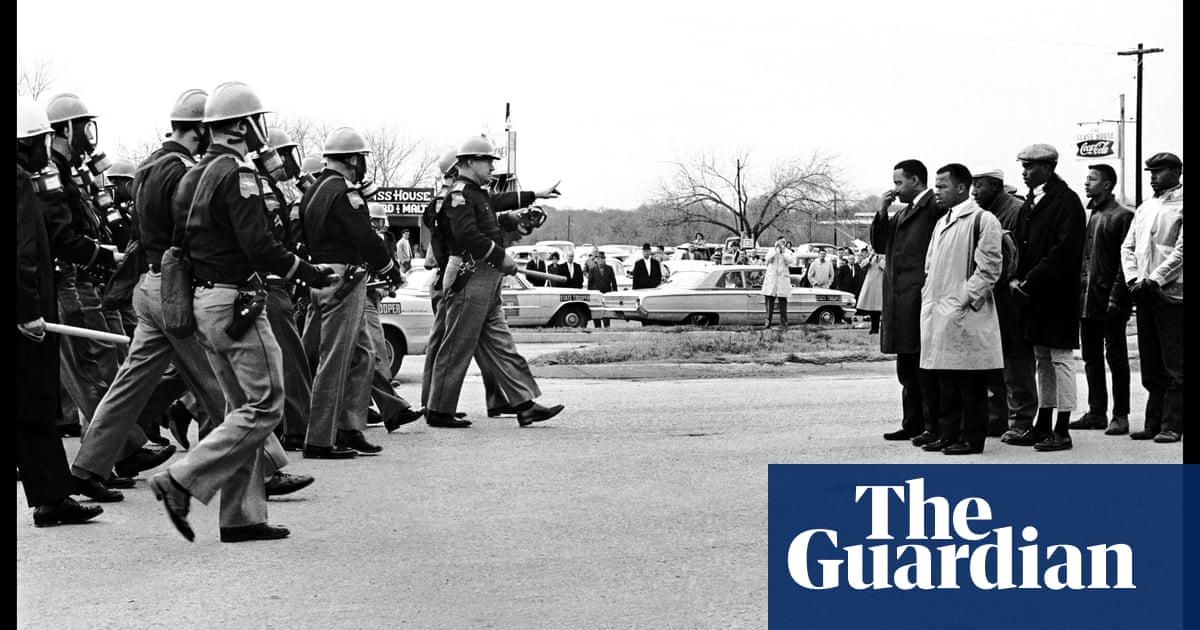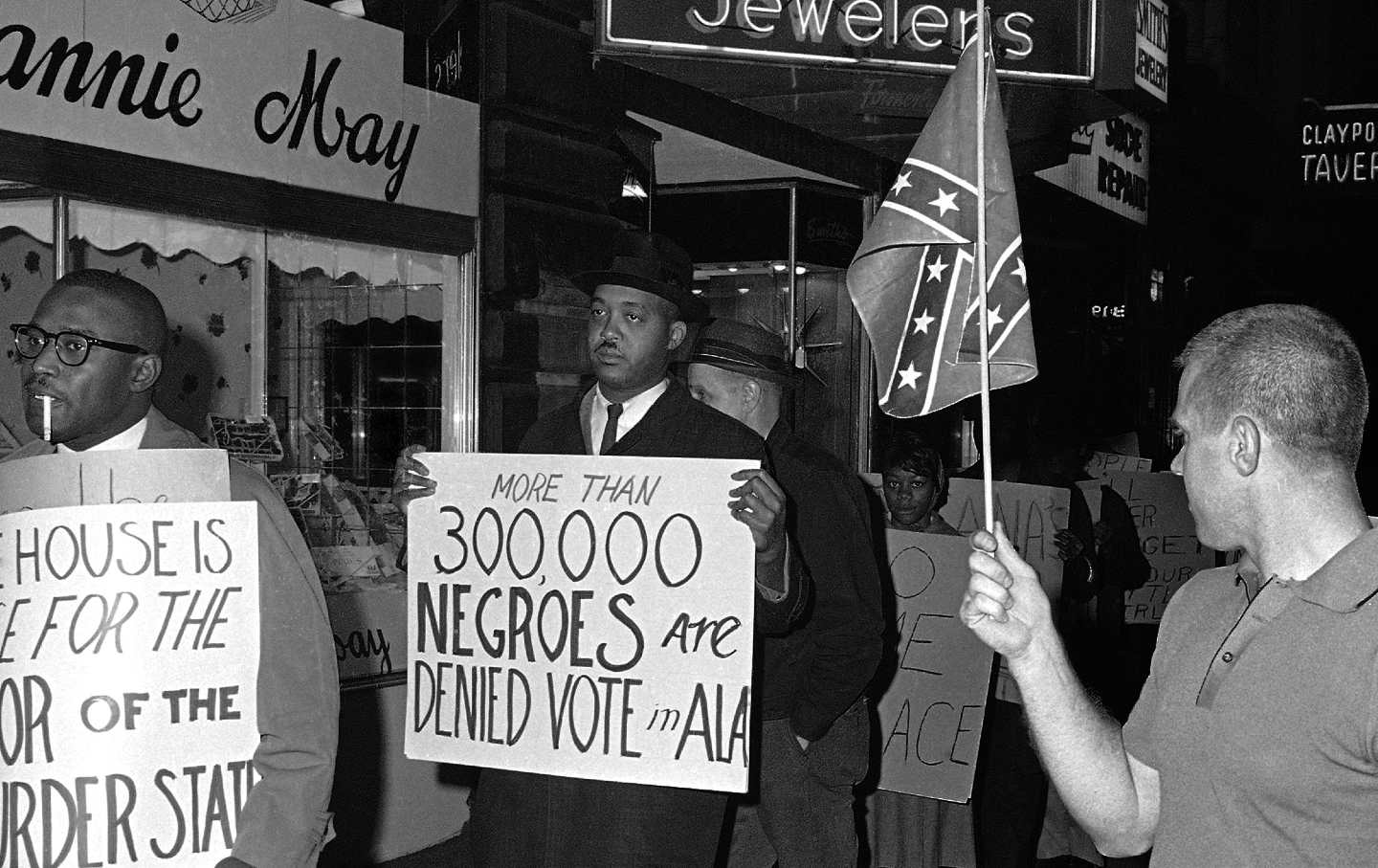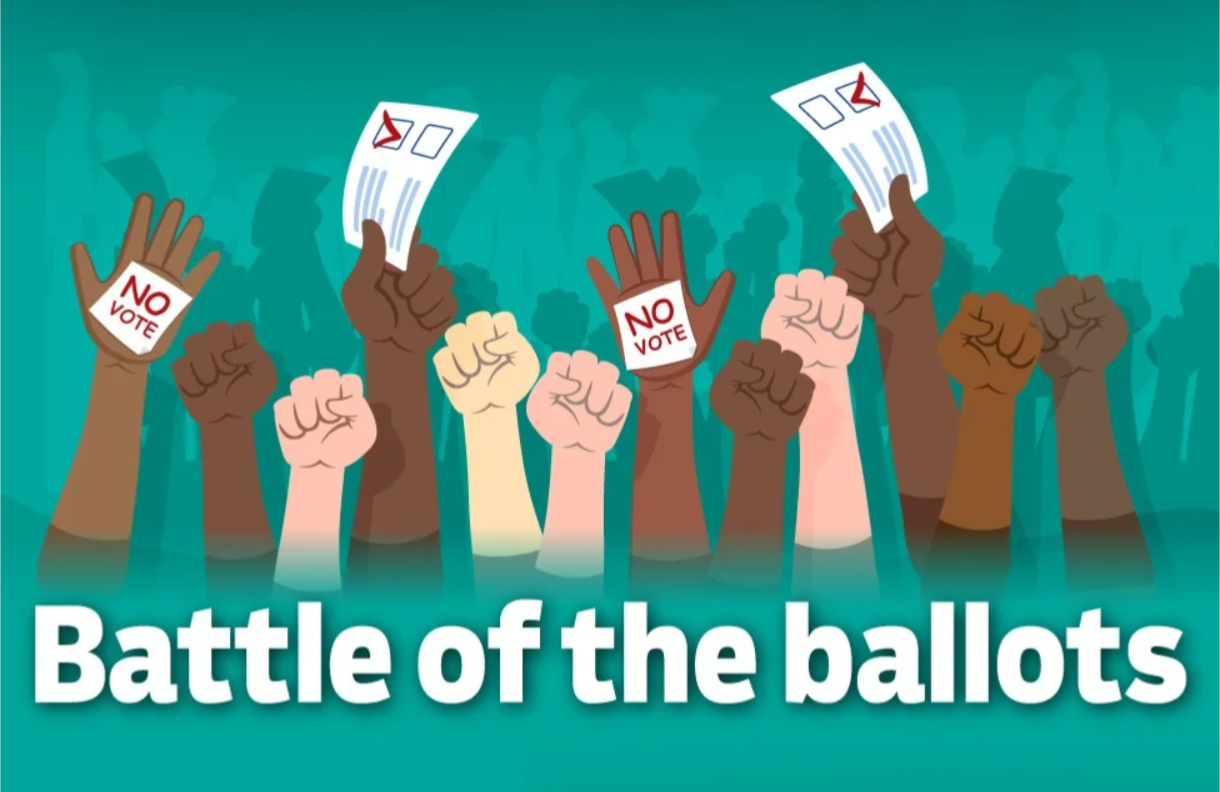- BlackVoter.Org
- Posts
- BlackVoter.Org
BlackVoter.Org


In a striking reminder of the fight for civil rights, newly restored photographs by photojournalist "Spider" Martin reveal the harrowing truth of Bloody Sunday, which took place on March 7, 1965. The images, on display at the exhibit "Selma Is Now" in Montgomery, capture the brutal violence faced by peaceful marchers advocating for voting rights as they crossed the Edmund Pettus Bridge in Selma, Alabama.
Martin’s powerful visuals not only shocked the nation but also fueled protests that ultimately contributed to the Voting Rights Act. As we commemorate this pivotal day, it’s crucial to recognize that the struggle for equality continues, mirrored in today’s voting laws that disproportionately affect African Americans.
Through these evocative images, we are reminded of the profound sacrifices made for democracy, inspiring a new generation to keep pushing for justice and fairness in every corner of society.

In an evocative reflection, Douglas H. White draws chilling parallels between the Trump presidency and the oppressive Jim Crow era of his youth.
He expresses deep concern about the resurgence of xenophobia and racism that echoes the painful memories of segregation, highlighting Trump's attempts to undermine diversity and voting rights for minorities. Through personal anecdotes, White recalls the fear and struggle against racial inequality while celebrating the resilience and hope of the Black community.
He critiques Trump's stark policies aimed at reinforcing white supremacy, framing them as a direct threat to the progress made in civil rights. Ultimately, White underscores the urgent need for vigilance and activism in the face of rising authoritarianism, citing the enduring legacy of past leaders who fought for justice.
Despite the daunting challenges, he finds hope in collective action, emphasizing that change is possible through continued effort and solidarity.

In a powerful opinion piece, Haley Taylor Schlitz argues that the alarming events of February 2025 illustrate a coordinated assault on Black history, identity, and democracy in America. Reflecting on what many are calling "the worst Black History Month ever," she highlights significant moments, including Trump’s controversial decisions that endangered civil rights and inclusivity.
Schlitz contends that the struggles of Black Americans are inextricably linked to the fight for democracy itself. As history shows, every advance in civil rights has been met with pushback, and today’s attacks echo past injustices.
The author implores readers to recognize that the future of Black America hangs in the balance, urging collective action to protect and uplift Black voices against rising authoritarianism. This moment, rather than marking despair, calls for mobilization—because if democracy falters for any, it is at risk for all.

In a striking analysis by Capital B News, Brandon Tensley uncovers how the Trump administration's offensive against diversity, equity, and inclusion (DEI) initiatives is unwinding critical civil rights protections. While claiming to eliminate DEI policies, the actions actually target long-standing safeguards fought for during the Civil Rights Movement.
Sociologists argue that this conflation of DEI with civil rights is a deceptive maneuver that undermines justice for marginalized communities, notably Black Americans. Historical parallels are drawn to past administrations, illustrating a recurring disregard for diversity efforts.
As federal agencies dismantle DEI programs, many fear job security and the erosion of hard-won rights. With a wave of layoffs and uncertainty, the consequences of this political crusade are felt deeply, especially among those who sought stability within federal roles.
The article serves as a poignant reminder of the ongoing struggle for equity and the importance of safeguarding the progress achieved in civil rights.

In "The Price of Apathy: How Young Voters of Color Face New Challenges in 2025," the article highlights the alarming disengagement of young voters of color from politics in the wake of a tumultuous election cycle. With nearly 90 million eligible Americans choosing not to vote in 2024, disenfranchisement feels more acute, especially for communities historically marginalized.
The recent election, which saw Donald Trump reemerge, raises concerns about a rise in discrimination and the erosion of protections established by pivotal civil rights legislation. This disinterest not only jeopardizes their political power but also threatens their futures in a society increasingly hostile to diversity and equity initiatives.
The piece urges young voters to resist apathy and engage with evolving political landscapes, as their participation is crucial in ensuring their rights and opportunities amid growing challenges. It's a rallying call for awareness and action, emphasizing that the stakes have never been higher for young individuals of color.

In a thought-provoking interview, Texas Rep. Jasmine Crockett sheds light on the evolving role of Black political leaders in today's polarized America.
Reflecting on historical figures like Frederick Douglass and Dr. Martin Luther King Jr.
, she emphasizes the urgency of contemporary challenges, likening the current climate to a new Civil Rights Movement fueled by concerns over police brutality, socio-economic divides, and the rollback of diversity initiatives under Trump. Contrary to concerns about a lack of visible leadership, Crockett argues that impactful voices exist, just in a decentralized form.
She champions local leaders like Pastor Jamal Bryant and highlights the ongoing responsibility of figures like herself within Congress to advocate for Black Americans. While acknowledging that not all politicians embody activism, Crockett stresses that leadership can manifest in diverse ways, encouraging the community to choose its own leaders in this critical time.

Elon Musk, once celebrated as a tech genius and public darling, has seen his popularity take a nosedive following his alignment with the MAGA movement. Recent polling reveals that 53% of registered voters disapprove of him in a prominent role within President Trump's new administration, leaving Musk with a concerning favorability rating of -11 points—down from +29 in 2016.
Initially known for his groundbreaking work with PayPal and Tesla, Musk's pivot to conservative politics has sparked backlash. He now openly supports Trump's policies, reinforcing his MAGA ties by contributing generously to the party.
Once a neutral figure in politics, Musk’s vocal endorsements and alignment with Trump have transformed him into a controversial figure. As public sentiment shifts, it becomes clear that Musk's trajectory is as unpredictable as the innovations he once championed.
What was once nerd love has turned into a love-hate relationship with the public.